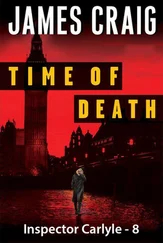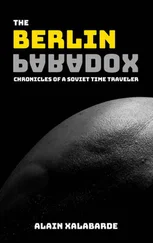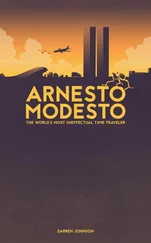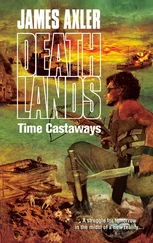James Gleick - Time Travel
Здесь есть возможность читать онлайн «James Gleick - Time Travel» — ознакомительный отрывок электронной книги совершенно бесплатно, а после прочтения отрывка купить полную версию. В некоторых случаях можно слушать аудио, скачать через торрент в формате fb2 и присутствует краткое содержание. Год выпуска: 2016, Издательство: Knopf Doubleday Publishing Group, Жанр: Старинная литература, на английском языке. Описание произведения, (предисловие) а так же отзывы посетителей доступны на портале библиотеки ЛибКат.
- Название:Time Travel
- Автор:
- Издательство:Knopf Doubleday Publishing Group
- Жанр:
- Год:2016
- ISBN:нет данных
- Рейтинг книги:5 / 5. Голосов: 1
-
Избранное:Добавить в избранное
- Отзывы:
-
Ваша оценка:
- 100
- 1
- 2
- 3
- 4
- 5
Time Travel: краткое содержание, описание и аннотация
Предлагаем к чтению аннотацию, описание, краткое содержание или предисловие (зависит от того, что написал сам автор книги «Time Travel»). Если вы не нашли необходимую информацию о книге — напишите в комментариях, мы постараемся отыскать её.
Time Travel — читать онлайн ознакомительный отрывок
Ниже представлен текст книги, разбитый по страницам. Система сохранения места последней прочитанной страницы, позволяет с удобством читать онлайн бесплатно книгу «Time Travel», без необходимости каждый раз заново искать на чём Вы остановились. Поставьте закладку, и сможете в любой момент перейти на страницу, на которой закончили чтение.
Интервал:
Закладка:
At some point the term “sufficiently advanced civilization” became a trope. As in: Even if we humans can’t do it, could a sufficiently advanced civilization? This is useful not just for SF writers but for physicists, too. So Thorne and Mike Morris and Ulvi Yurtsever wrote in Physical Review Letters in 1988, “We begin by asking whether the laws of physics permit an arbitrarily advanced civilization to construct and maintain wormholes for interstellar travel.” Not coincidentally, twenty-six years later, Thorne served as executive producer and science advisor for the 2014 big-budget movie Interstellar. “One can imagine an advanced civilization pulling a wormhole out of the quantum foam,” they wrote in the 1988 paper, and they included an illustration captioned “Spacetime diagram for conversion of a wormhole into a time machine.” They were contemplating wormholes with mouths in motion: a spaceship might enter one mouth and exit another mouth in the past. Fittingly, they concluded by posing a paradox, only this time it isn’t the grandfather who dies:
Can an advanced being measure Schrödinger’s cat to be alive at an event P (thereby “collapsing its wave function” onto a “live” state), then go backward in time via the wormhole and kill the cat (collapse its wave function onto a “dead” state) before it reaches P ?
They left that question unanswered.
Hawking stepped in. He analyzed the wormhole physics as well as the paradoxes (“all sorts of logical problems, if you were able to change history”). He considered the possibility of evading the paradoxes “by some modification of the concept of free will,” but free will is seldom a happy topic for a physicist, and Hawking saw a better approach: what he proposed to call the chronology protection conjecture. A great deal of calculation was required, and when the calculating was done, Hawking was convinced: the laws of physics would protect history from the supposed time travelers. Notwithstanding Kurt Gödel, they must forbid the appearance of closed timelike curves. “It seems there is a chronology protection agency,” he wrote sci-fi-ishly, “which prevents the appearance of closed timelike curves and so makes the universe safe for historians.” And he concluded with a flourish—the kind of thing Hawking could get away with in the Physical Review. He had more than a theory. He had “evidence”:
There is also strong experimental evidence in favor of the conjecture from the fact that we have not been invaded by hordes of tourists from the future.
Hawking is one of those physicists who knows that time travel is impossible but also knows it’s fun to talk about. He points out that we are all traveling through time, one second at a time. He describes black holes as time machines, reminding us that gravitation slows the passage of time locally. And he often tells the story of the party he threw for time travelers—invitations sent only after the fact: “I sat there a long time, but no one came.”
In fact, the chronology protection conjecture had been floating about long before Stephen Hawking gave it a name. Ray Bradbury, for example, stated it in his 1952 story about time-traveling dinosaur hunters: “Time doesn’t permit that sort of mess—a man meeting himself. When such occasions threaten, Time steps aside. Like an airplane hitting an air pocket.” Notice that time has agency here: time doesn’t permit, and time steps aside. Douglas Adams offered his own version: “Paradoxes are just the scar tissue. Time and space heal themselves up around them and people simply remember a version of events which makes as much sense as they require it to make.”
Perhaps that seems a bit magical. Scientists prefer to credit the laws of physics. Gödel thought a robust, paradox-free universe was simply a matter of logic. “Time travel is possible, but no person will ever manage to kill his past self,” he told a young visitor in 1972. *8“The a priori is greatly neglected. Logic is very powerful.” At some point chronological protection became part of the ground rules. It even became a cliché. In her 2008 story “The Region of Unlikeness,” Rivka Galchen can take all that old stage business for granted:
Science fiction writers have arrived at analogous solutions to the grandfather paradox: murderous grandchildren are inevitably stopped by something—faulty pistols, slippery banana peels, their own consciences—before the impossible deed can be carried out.
Region of unlikeness comes from Augustine: “I perceived myself to be far off from Thee, in the region of unlikeness”— in regione dissimilitudinis. He is not fully realized. Nor are any of us, bound as we are in time and space. “I beheld the other things below Thee, and I perceived that they neither altogether are, nor altogether are not.” God is eternity, remember, and we are not, much to our sorrow.
Galchen’s narrator falls into a friendship with two older men, philosophers maybe, scientists, it’s all a bit vague. The relationships are not well defined. The narrator feels that she is a bit undefined herself. The men speak in riddles. “Oh, time will tell,” one of them says. And: “Time is our tragedy, the substance we have to wade through as we try to move closer to God.” They vanish from her life for a while. She watches the obituary pages. An envelope appears mysteriously in her mailbox—diagram, billiard balls, equations. She thinks of an old joke: “Time flies like an arrow and fruit flies like a banana.” One thing becomes clear: everyone in this story knows a lot about time travel. A fateful loop—the same paradox as ever—begins to emerge from the shadows. Some rules are explained: that “contrary to popular movies, travel into the past didn’t alter the future, or, rather, that the future was already altered, or, rather, that it was all far more complicated than that.” Fate seems to be tugging at her, in a gentle way. Can anyone evade destiny? Look what happened to Laius. All she can say is, “Surely our world obeys rules still alien to our imagination.”
—
WE BEGIN AGAIN. A woman stands at the end of a “pier”—the open-air observation platform at Orly Airport ( la grande jetée d’Orly ), overlooking a sea of concrete on which the great metal jetliners rest, pointed like arrows toward the future. The sun is pale in a charcoal sky. We hear shrill jet blasts, a ghostly choir, murmuring voices. The woman almost smiles as the wind ruffles her hair. A child holds on to the railing, watching the planes on a warm Sunday. He sees the woman raise her hands to her face in horror and sees also, out of the corner of his eye, a blur, a falling shape. Later, he knew he had seen a man die, the narrator intones. Not long afterward, World War III begins. A nuclear holocaust destroys Paris, and the rest of the world, too.
This is La jetée, a 1962 film by Chris Marker—the pen name of Christian François Bouche-Villeneuve, born in 1921, a philosophy student, a resistance fighter with the Maquis, and then a roving journalist and photographer. *9He was rarely photographed without a mask and lived to be ninety-one. In the fifties, after he worked with Alain Resnais on his Holocaust documentary Night and Fog, Resnais said: “A theory is making the rounds, and not without some grounds, that Marker could be an extra-terrestrial. He looks like a human, but perhaps he could be from the future or another planet.” Marker called La jetée a “photo-novel”: it is composed of still photographs, fading and dissolving, shifting points of view, to create, as one critic observed, the “illusion of a time-space continuum.” We are told that it is the story of a man marked by a memory from his childhood. The sudden roar, the woman’s gesture, the crumpling body, and the cries of the crowd on the jetty blurred by fear. The memory—and the marking—make him a candidate for time travel.
Читать дальшеИнтервал:
Закладка:
Похожие книги на «Time Travel»
Представляем Вашему вниманию похожие книги на «Time Travel» списком для выбора. Мы отобрали схожую по названию и смыслу литературу в надежде предоставить читателям больше вариантов отыскать новые, интересные, ещё непрочитанные произведения.
Обсуждение, отзывы о книге «Time Travel» и просто собственные мнения читателей. Оставьте ваши комментарии, напишите, что Вы думаете о произведении, его смысле или главных героях. Укажите что конкретно понравилось, а что нет, и почему Вы так считаете.












